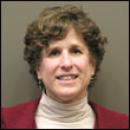VISION: A world in which all children with neurodevelopmental disabilities and other special health care needs will achieve their full potential.
MISSION: To serve as a center of excellence in the field of maternal and child health, and prepare future leaders, policy makers, clinicians, and researchers in the field of neurodevelopmental and related disabilities.
The Child Development Clinic provides diagnosis, assessment and management plans for children from birth to adolescence with or at risk for neurodevelopmental disabilities. Clinic staff work in interdisciplinary teams, combining expertise in evaluating each child and making recommendations. The goal is to provide definitive developmental and etiologic diagnoses with useful management recommendations that support the primary care providers in establishing a true Medical Home for each child.
The High Risk Infant Follow-up Clinic (HRIF) provides developmental follow-up of children from birth to age 8 who are designated as high risk due to prematurity and/or low birth weight or prenatal exposure to drugs. The goal of the clinic is to provide early identification and referral for early intervention for the neurodevelopmental and neurobehavioral problems associated with prematurity, drug exposure and other biomedical and environmental risk factors.
Dr. McLaughlin serves as the Director of the Neurodevelopmental Program at Seattle Children's. Drs. Zinner and Bennett also work in developmental pediatrics programs operated at Seattle Children's.
For appointments, please call:
Main Clinic Phone Number: (206) 598-4317
Child Development Clinic: (206) 598-9346
High Risk Infant Follow-up clinic: (206) 598-9348
Website: IHDD Clinical Services
The research programs at the Clinical Training Unit are focused on understanding the causes, preventing and designing new treatments for developmental disorders. Dr. Zinner's research focus is on Tourette syndrome. Dr. Bennett's research is on developmental outcomes of neonatal conditions and treatments. He is also involved in projects aimed at strengthening the primary care network for children with disabilities. Dr. McLaughlin's research, based partly at Seattle Children's, is on measurement and treatment of spasticity in children with cerebral palsy and other disorders. Ms. Trahms research focus is on newborn screening for and treatment of inborn errors of metabolism and related disorders. Dr. TeKolste is involved in multiple preventive projects aimed at improving services to children with neurodevelopmental disabilities and especially in the smooth transition of care into the adult health care system for adolescents.
Developmental/Behavioral Pediatrics Fellowship training:
Faculty at the Clinical Training Unit mentor fellows in the ACGME-approved fellowship operated within the Division of Developmental Medicine.
The fellowship director is: William O. Walker, MD. For more information, please visit the Developmental Behavioral Pediatrics Fellowship webpage.
Developmental/behavioral pediatrics training required for all pediatric residents by the Residency Review Committee, ACGME is provided by the faculty at CTU, led by Dr. Zinner. The residency training includes activities at Seattle Children's and in multiple community venues. See the Developmental/Behavioral Pediatrics training website.
Leadership Education in Neurodevelopmental Disabilities Training Program (LEND):
The LEND at the University of Washington is a graduate level interdisciplinary training program that prepares professionals and graduate students for leadership roles in providing health and related services for children with neurodevelopmental disabilities and their families. The goal of the LEND program is to improve the health of children with neurodevelopmental disabilities. This is accomplished by preparing trainees from a variety of disciplines to assume leadership roles and to ensure clinical and research competence. Trainees include pediatricians, other physicians and professionals in psychology, audiology, nutrition, social work, occupational therapy, physical therapy, dentistry, nursing, speech/language pathology, special education and health administration. Families of children with special needs participate as teachers and consultants. LEND programs are supported by the Maternal and Child Health Bureau of the Health Resources and Services Administration.
Institute on Human Development and Disability (IHDD)
Leadership Education in Neurodevelopmental and Related Disabilities (LEND)
Dr. Bennett is the Director, Medical Student Education, for the Department of Pediatrics and Seattle Children's and the Pediatric Director, WWAMI Program, University of Washington.
Medical student electives in developmental disabilities and child development are provided by CTU faculty with Dr. Zinner's leadership and the collaboration of the faculty in Developmental Medicine.
LEND training program:
Sally Stuart, MSW Training Director
Phone: (206) 543-2513,
Email: sns@u.washington.edu
Beth Ellen Davis, MD, MPH
Clinical Associate Professor UW LEND Director Director, Clinical Training Unit
Institute on Human Development and Disability (IHDD)
University of Washington
Box 357920
Seattle, WA 98195-7920
Phone: (206) 685-1350
Fax: (206) 598-7815
Email: ihdd@uw.edu

